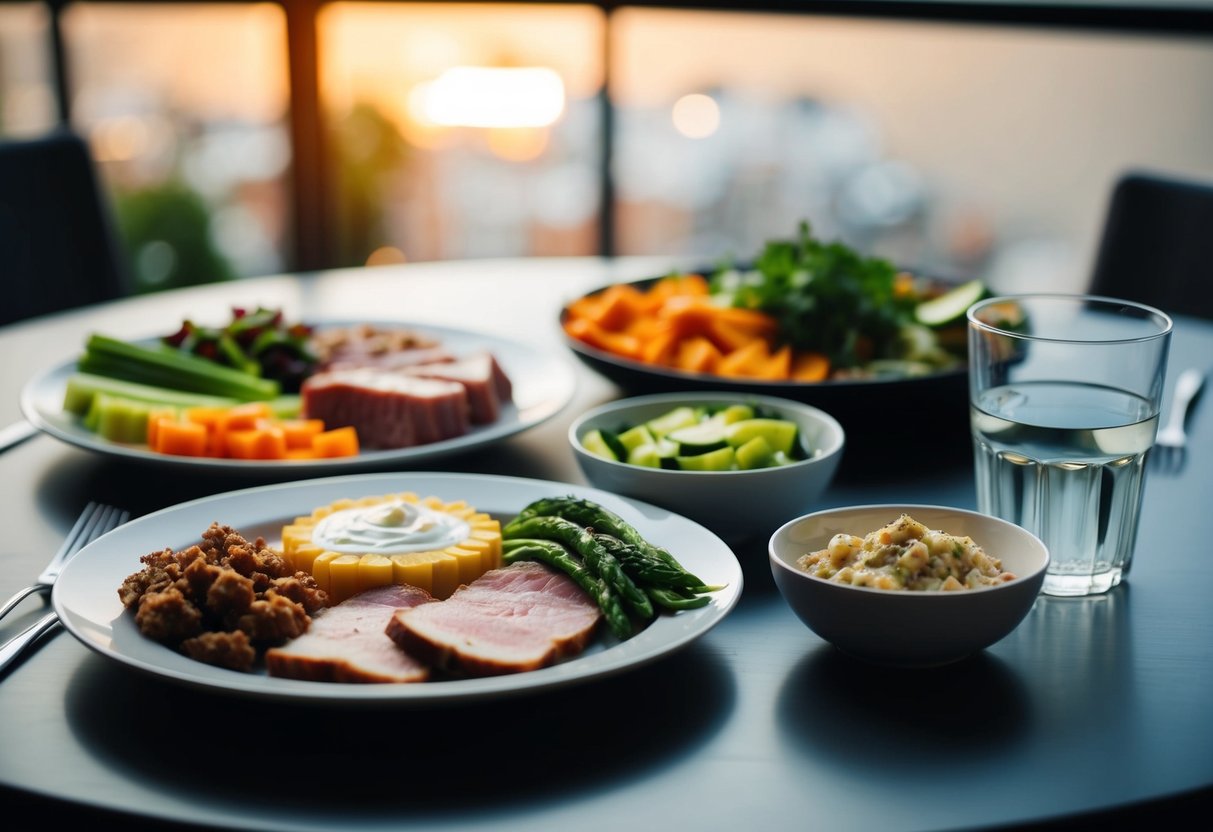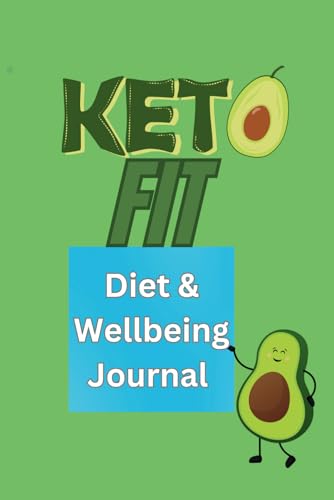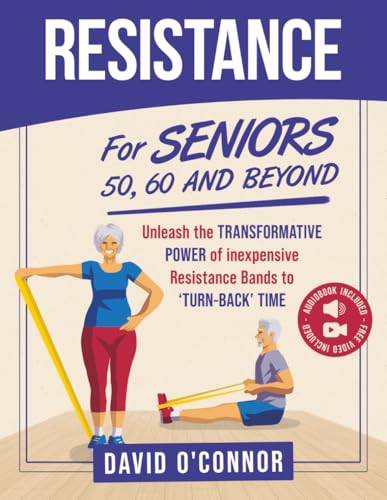Keto Diet for Seniors: Essential Tips for Safe Transition
This post may contain affiliate links. If you purchase through these links, I may earn a small commission at no extra cost to you. LEARN MORE.
A growing number of seniors are turning to the keto diet, attracted by its potential for weight loss, improved blood sugar control, and enhanced mental clarity.
This high-fat, low-carb regimen encourages the body to enter a state of ketosis, where it burns fat for fuel instead of carbohydrates.
The keto diet for seniors offers benefits such as preserving muscle mass and potentially lowering the risk of chronic diseases.

Adapting the keto diet for seniors involves more than just cutting carbs; it requires careful consideration of nutritional needs unique to older adults.
Ensuring adequate intake of essential nutrients, staying hydrated, and regular medical supervision are crucial components of a successful keto lifestyle for individuals over 60.
Although there are challenges, utilizing targeted meal plans and recipes can help seniors seamlessly integrate this diet into their daily routine.
The keto diet is not a one-size-fits-all approach. Customizing it to address specific health concerns and ensuring balanced nutrition can make it a sustainable and beneficial choice for seniors seeking to enhance their overall well-being.
Key Takeaways
- Seniors can benefit from the keto diet through improved health outcomes.
- Customization is key to addressing the unique nutritional needs of older adults.
- Challenges can be managed with well-planned meals and medical supervision.
Understanding the Keto Diet

The keto diet is a low-carbohydrate, high-fat diet designed to shift the body’s energy source from glucose to ketones. This section examines the basic principles of the keto diet and the specific foods that are encouraged or should be avoided.
Keto Diet Basics
The ketogenic diet, often referred to as keto, is centered around a significant reduction in carbohydrate intake and an increase in fat consumption. This shift helps the body enter a metabolic state known as ketosis, where fat becomes the primary energy source.
For beginners, it’s crucial to understand the macronutrient composition of the diet.
Typically, 70-80% of calories come from fats, 10-20% from proteins, and 5-10% from carbohydrates. This ratio helps diminish glucose reserves, encouraging the body to produce and use ketones for energy.
Starting the keto diet involves gradually reducing carb intake while increasing healthy fats.
Monitoring these keto diet macros is essential for maintaining ketosis and achieving desired health benefits.
Foods to Include and Avoid
On the keto diet, selecting the right foods is pivotal in maintaining ketosis.
Foods to include are nutrient-dense and low in carbs, such as meat, poultry, seafood, eggs, avocados, and leafy greens. These options ensure adequate intake of vitamins and minerals while boosting fat consumption.
Foods to avoid include those high in carbohydrates like grains, pastas, potatoes, and sugary fruits.
Replacing these with keto-friendly alternatives supports the metabolic shift required for the diet.
Maintaining a comprehensive keto diet food list can help individuals make informed decisions, ensuring consistency and effectiveness of the dietary plan over time.
Customizing Your Keto Diet

When tailoring the keto diet for seniors, it’s crucial to focus on individual health needs and preferences. Personalized plans can optimize health benefits and help maintain adherence.
Creating a Personalized Keto Plan
To begin customizing keto diet for seniors, you should consider personal health conditions such as diabetes or heart disease.
Utilizing resources like a custom keto diet quiz can help determine optimal macronutrient distribution tailored for their specific needs.
It’s also essential to evaluate lifestyle factors.
A custom keto diet plan should account for activity levels, dietary preferences, and potential food allergies.
Engaging with a healthcare provider could enhance decision-making, ensuring nutritional needs are adequately met, while supporting weight management or other health goals.
Meal Planning for Seniors
When planning meals, seniors should prioritize whole foods rich in nutrients.
A keto diet for seniors’s meal plan can include a variety of vegetables, lean proteins, and healthy fats like avocados or olive oil, which support heart health.
Incorporating simple recipes that require minimal preparation time can encourage consistency in following the diet.
For diabetics, monitoring carbohydrate intake and selecting low-glycemic options can help regulate blood sugar levels.
Setting up a weekly custom keto meal plan can ease the process, ensuring meal variety and nutrient quality.
Adapting Keto Diet for Seniors Health

The keto diet can offer significant advantages for seniors, particularly in aiding diabetes management and supporting bone and joint health. These benefits can improve overall wellbeing and quality of life.
Keto Diet and Diabetes Management
The ketogenic diet has shown promise in assisting diabetic seniors by stabilizing blood sugar levels.
Low carbohydrate intake can reduce blood glucose fluctuations, helping to manage insulin sensitivity effectively.
By predominantly utilizing fat for energy rather than glucose, the body minimizes spikes in blood sugar, which can be beneficial for individuals dealing with type 2 diabetes.
Furthermore, some studies indicate that a keto diet may contribute to weight loss, which is often critical for diabetic seniors.
Shedding extra pounds can lower the risk of developing diabetes-related complications, such as neuropathy and cardiovascular issues.
However, it’s crucial for seniors to consult healthcare providers before making dietary changes to ensure it’s a suitable approach given their health conditions.
Bone and Joint Health Considerations
Seniors often face challenges related to bone density and joint health.
While a keto diet for seniors can lead to weight loss, which might reduce stress on joints, it’s essential to maintain a balanced intake of nutrients.
Certain nutrients like calcium and vitamin D are vital for preserving bone strength. Incorporating leafy greens, nuts, and oily fish into the diet can help meet these needs.
Additionally, the reduction in processed foods common with ketogenic diets can decrease inflammation, potentially offering relief for joint pain.
Seniors should be mindful of including foods that support joint health, ensuring that while they reduce carbs, they’re still getting essential vitamins and minerals.
Regular check-ups with healthcare professionals can help adjust the diet to mitigate any potential nutrient deficiencies.
Potential Challenges and Solutions

Keto diet for seniors may face specific challenges, such as managing side effects and the integration of suitable exercises. Identifying solutions for these can help in achieving desired results effectively.
Managing Common Side Effects
Adopting a keto diet can sometimes lead to side effects like headaches, fatigue, and digestive issues, often referred to as the “keto flu.”
These symptoms are generally temporary and occur as the body adjusts to burning fat for energy instead of carbohydrates.
To alleviate these symptoms, maintaining adequate hydration is crucial.
Drinking electrolyte-rich fluids can prevent dehydration and replenish essential minerals like sodium, potassium, and magnesium.
Gradually transitioning to a keto diet rather than making abrupt changes may also reduce discomfort.
Tracking daily nutrient intake is helpful.
Ensuring a balanced intake of fats, proteins, and carbohydrates according to dietary goals can minimize side effects.
Consulting healthcare professionals familiar with keto can provide personalized guidance and adjustments if necessary.
Incorporating Exercise with Keto
Exercise is an important component for maximizing the benefits of a keto diet.
Seniors should consider their fitness levels and capabilities when planning workouts while following the diet.
Low-impact activities such as walking, swimming, or yoga can be ideal for maintaining cardiovascular health and promoting flexibility without excessive strain.
Strength training exercises, featuring light weights or resistance bands, can improve muscle mass and overall strength, which is often a concern for seniors.
Ensuring proper nutrition to support exercise is critical.
Including enough protein can aid muscle recovery and energy levels, enhancing workout performance.
Combining exercise with a keto diet under professional supervision can enhance the likelihood of achieving positive outcomes, like improved mobility and weight management, while minimizing injury risks.
Meal Plans and Recipes

Crafting a keto diet for seniors involves careful consideration of their unique nutritional needs. A wide range of meal plans and delicious recipes can support seniors in their keto journey, each focusing on easy-to-digest, nutrient-rich foods.
7-Day and 60-Day Meal Plan Options
Meal plans like the 7-day and 60-day options offer structured approaches to maintaining a ketogenic diet.
A 7-day meal plan might include simple dishes such as scrambled eggs for breakfast and a kale salad with grilled chicken for lunch. Dinners may feature salmon with asparagus.
The 60-day meal plan allows for greater dietary variety and long-term adherence.
This extended plan enables flexibility, integrating meals like cauliflower rice stir-fry and avocado-laden snacks.
These plans often come with a keto grocery list to streamline shopping, ensuring all essentials like leafy greens and protein sources are available.
Keto-Friendly Recipes for Seniors
Seniors can enjoy a variety of keto-friendly meals tailored to their preferences.
Breakfast might include straightforward recipes like a spinach omelet or a chia seed pudding. Lunch options could feature turkey lettuce wraps or a zucchini noodle salad.
For dinner, recipes such as beef stew with low-carb vegetables provide warmth and satisfaction.
Desserts are also possible with options like almond flour cookies or coconut milk ice cream, both delicious and compliant with keto guidelines.
These recipes are not only flavorful but also focus on balance, providing the necessary fats and proteins while limiting carbohydrates.
Frequently Asked Questions
Exploring the keto diet for seniors involves understanding the balance of benefits and risks, adapting meal plans to meet nutritional requirements, and considering age-specific factors. These topics are especially crucial for individuals over the age of 50, particularly women, as they embark on this dietary journey.
What are the benefits and risks of a keto diet for individuals over 70?
The keto diet for seniors can help managing weight and blood sugar levels. Yet, it also carries risks, including nutrient deficiencies and dehydration.
Monitoring health regularly is essential to avoid complications, ensuring that both benefits and potential concerns are addressed effectively.
How can seniors over 50 tailor a keto meal plan to meet their nutritional needs?
Seniors should focus on incorporating nutrient-dense foods such as leafy greens, fatty fish, and nuts.
It’s vital to adjust macronutrient ratios to support their unique dietary requirements. Consulting with a healthcare professional can help in creating a balanced meal plan.
What are the specific considerations for a 60-year-old woman starting a keto diet?
A 60-year-old woman may need to consider hormone changes affecting metabolism.
Choosing foods rich in calcium and vitamin D is important to support bone health.
Regular check-ups can help manage any changes in health, ensuring a safe transition to this low-carb lifestyle.
What should seniors eat on a keto diet to align with their age-related dietary requirements?
Dietary needs change with age, requiring a focus on whole foods like vegetables, lean proteins, and coconut oil.
Avoiding processed foods can help maximize health benefits.
Seniors may also consider supplements to support vitamin intake, as recommended by health professionals.
Are there any health concerns for seniors following a keto diet, and how can risks be mitigated?
Concerns such as heart health, kidney function, and nutritional deficits may arise.
Seniors can mitigate risks by staying hydrated, balancing electrolytes, and having regular medical evaluations.
This approach helps maintain long-term health while following the keto diet.
What factors determine whether a keto diet for seniors is appropriate for elder citizens?
Health status, including any chronic conditions, is a key determinant.
Seniors should evaluate mobility, energy levels, and dietary preferences.
Consulting with healthcare providers ensures an informed decision.
They can consider personal health needs and lifestyle aspirations before adopting the keto lifestyle.










